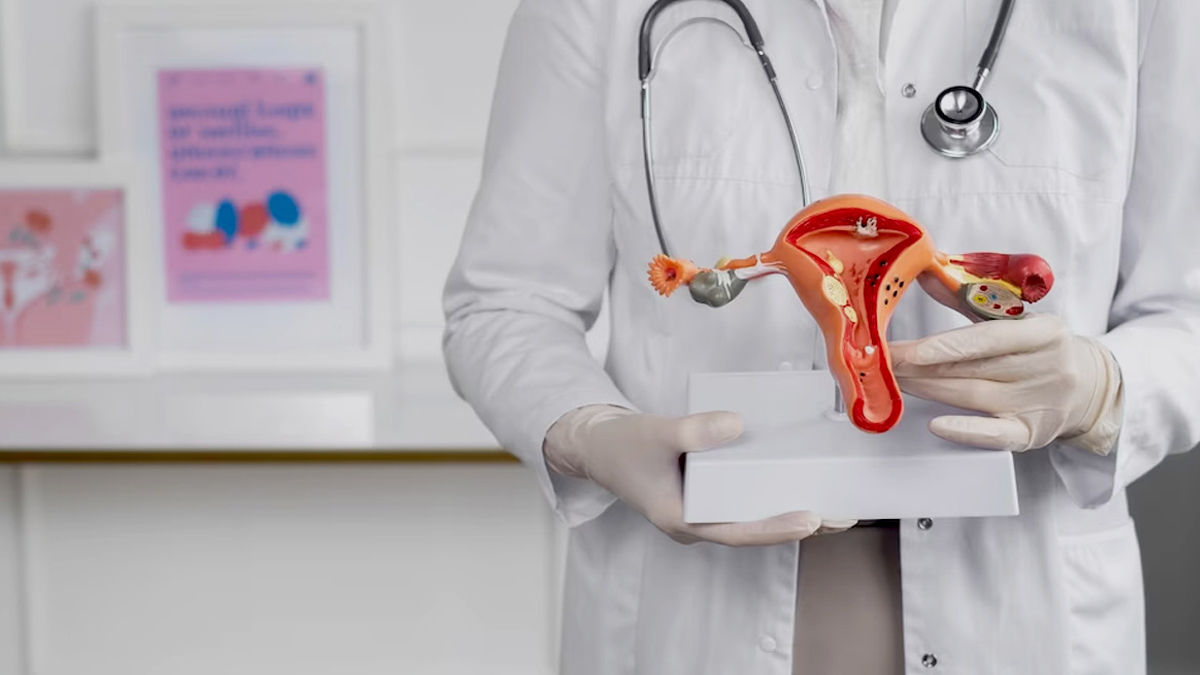
In a recent candid interview with PEOPLE magazine, Tiffany Haddish, the renowned 44-year-old actress and comedian, opened up about her silent struggle with endometriosis, a condition she has been grappling with for years. Endometriosis, characterised by the endometrium extending outside the uterus, has inflicted intense pelvic pain and fertility challenges upon her, shedding light on the silent battles many women face behind closed doors.
Table of Content:-
Enduring Pain and Seeking Answers
For Tiffany, the torment of endometriosis has been a relentless ordeal, marked by excruciating pain that disrupts her daily life, especially during menstruation. She vividly describes the first day of her period as a descent into hell, with debilitating pain that leaves her feeling as though her life has been turned upside down. It wasn't until November 2023, when the pain became so unbearable that she began fainting, that Tiffany sought medical attention. Her revelation of having a dent in her uterus further underscores the severity of her condition.
Reproductive Health Struggles

Beyond the physical agony, Tiffany has faced profound emotional challenges, particularly regarding her fertility. The toll of eight miscarriages has been devastating, casting a shadow over her journey to motherhood. Despite her comedic persona, Tiffany approaches pregnancy with solemnity, making significant lifestyle changes with each conception, even if the desire for a child wasn't always at the forefront of her mind. Presently celibate and disinclined towards marriage or motherhood, Tiffany grapples with conflicting desires, yearning to impart her love to a child while reconciling with her current life choices.
Understanding Endometriosis: Diagnosis and Treatment
Dr. Rajesh Sharma, Adjunct Faculty at IIIT-Delhi and Associate Professor, Head of the Computational Social Science Lab at the University of Tartu, Estonia, stated that endometriosis, a multifaceted and often misconstrued condition, impacts the lives of millions of women globally. Despite its widespread occurrence, endometriosis continues to be cloaked in mystery, leaving affected individuals contending with limited information and awareness. Recently, computational techniques were utilised to uncover social media discussions pertaining to endometriosis, revealing a diverse array of emotions, challenges, and pressing needs.
Also Read: Sonali Bendre Reveals First Thought After Cancer Diagnosis: Coping With Cancer Diagnosis
Endometriosis, often insidious in its onset, requires a multifaceted approach to diagnosis and management. Physicians typically initiate the diagnostic process with a comprehensive physical examination, probing for telltale signs of the condition. Imaging modalities such as ultrasound and MRI serve as valuable adjuncts, offering insights into the extent and localisation of endometriotic lesions. However, the gold standard for diagnosis remains laparoscopy, a minimally invasive surgical procedure that enables direct visualisation and tissue sampling.
Navigating Treatment Options
Treatment strategies for endometriosis encompass a spectrum of medical and surgical interventions tailored to individual needs and reproductive goals. Pharmacotherapy, comprising pain management and hormonal therapies, constitutes the cornerstone of initial management. Hormonal contraceptives, gonadotropin-releasing hormone agonists, and progestin-based regimens offer symptomatic relief by modulating hormonal fluctuations that fuel endometriotic growth. Surgical interventions, ranging from conservative laparoscopic excision to hysterectomy, may be warranted in refractory cases or when fertility preservation is paramount.
Empowerment Through Support and Advocacy
Amidst the labyrinth of medical consultations and treatment decisions, cultivating a support network emerges as a vital coping mechanism. Peer-led support groups, both in-person and virtual, offer solace and camaraderie to individuals navigating the complexities of endometriosis. Equally essential is the advocacy for increased awareness and research funding, amplifying the voices of those afflicted by this enigmatic condition and driving initiatives for improved diagnostic modalities and therapeutic innovations.
Also Read: CDC Identifies First Cases of HIV Transmission Via Cosmetic Needles; Ways HIV Can Be Transmitted
Embracing Holistic Wellness
Beyond conventional medical interventions, embracing holistic approaches to wellness can complement traditional management strategies. Lifestyle modifications, including dietary adjustments, regular exercise, and stress reduction techniques, may alleviate symptom burden and enhance overall quality of life. Additionally, exploring alternative modalities such as acupuncture, chiropractic care, and herbal supplements may offer supplementary relief, albeit with caution and under professional guidance.
Bottomline
Tiffany Haddish's candid revelation of her battle with endometriosis underscores the imperative for heightened awareness and compassionate support for those grappling with chronic reproductive health conditions. As we endeavour to destigmatise conversations surrounding women's health and foster inclusive healthcare practices, may Tiffany's resilience serve as a beacon of hope, inspiring individuals to confront their challenges with fortitude and seek solace in solidarity.
Also watch this video
Read Next
Diagnosed With PCOS And Sleep Apnea? Expert Shares Why You Should Not Ignore This Sleep Disorder
How we keep this article up to date:
We work with experts and keep a close eye on the latest in health and wellness. Whenever there is a new research or helpful information, we update our articles with accurate and useful advice.
Current Version